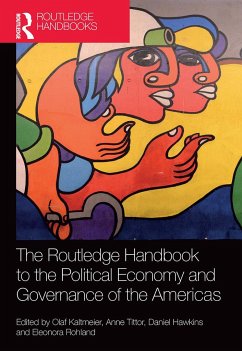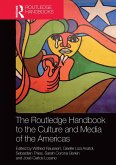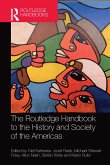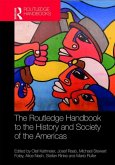This handbook explores the political economy and governance of the Americas, placing particular emphasis on collective and intertwined experiences. Forty-six chapters cover a range of Inter-American key concepts and dynamics.
The flow of peoples, goods, resources, knowledge and finances have on the one hand promoted interdependence and integration that cut across borders and link the countries of North and South America (including the Caribbean) together. On the other hand, they have contributed to profound asymmetries between different places. The nature of this transversally related and multiply interconnected hemispheric region can only be captured through a transnational, multidisciplinary and comprehensive approach. This handbook examines the direct and indirect political interventions, geopolitical imaginaries, inequalities, interlinked economic developments and the forms of appropriation of the vast natural resources in the Americas. Expert contributors give a comprehensive overview of the theories, practices and geographies that have shaped the economic dynamics of the region and their impact on both the political and natural landscape.
This multidisciplinary approach will be of interest to a broad array of academic scholars and students in history, sociology, geography, economics and political science, as well as cultural, postcolonial, environmental and globalization studies.
The flow of peoples, goods, resources, knowledge and finances have on the one hand promoted interdependence and integration that cut across borders and link the countries of North and South America (including the Caribbean) together. On the other hand, they have contributed to profound asymmetries between different places. The nature of this transversally related and multiply interconnected hemispheric region can only be captured through a transnational, multidisciplinary and comprehensive approach. This handbook examines the direct and indirect political interventions, geopolitical imaginaries, inequalities, interlinked economic developments and the forms of appropriation of the vast natural resources in the Americas. Expert contributors give a comprehensive overview of the theories, practices and geographies that have shaped the economic dynamics of the region and their impact on both the political and natural landscape.
This multidisciplinary approach will be of interest to a broad array of academic scholars and students in history, sociology, geography, economics and political science, as well as cultural, postcolonial, environmental and globalization studies.








